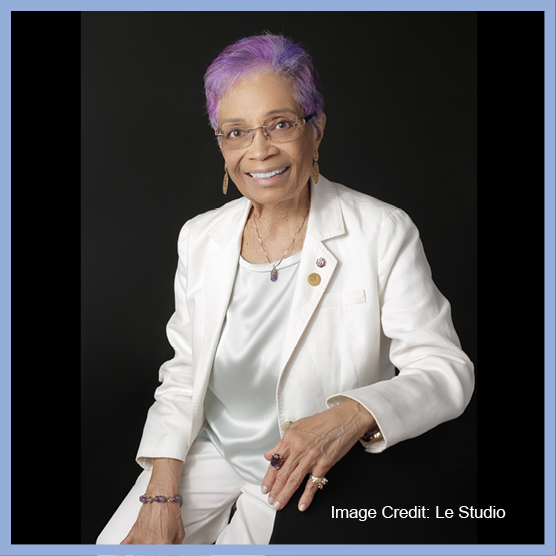An educator, author, and citizen architect with worldwide reach, Dr. Sharon Egretta Sutton, FAIA, has shifted the profession of architecture toward a more equitable, diverse, and inclusive future. Fueled by a passion for representing the unrepresented, she has shaped a career informed by the obstacles constructed by the country’s political landscape. Throughout, she has developed research and tools that encourage the next generation of design professionals to heed the call of activism.
Sutton’s list of achievements is lengthy, and she is no stranger to breaking new ground: She was just the 12th African American woman to become a licensed architect in the U.S., the first to be promoted to full professor of architecture, and the second to be elevated to AIA fellowship. Currently, she is a distinguished professor of architecture at Parsons School of Design, and she previously served on the faculties of the University of Washington, the University of Cincinnati, Columbia University, and Pratt Institute. Under her tutelage, a roster of transformative leaders has risen to pivotal positions in architectural education and practice.
In the early days of her career as both a professional musician and burgeoning architect, she was a staunch advocate for social justice causes, supporting efforts to end housing discrimination and dismantle institutional barriers. Later, she drew on her experiences as an affirmative action student at Columbia University’s School of Architecture to reveal how the school recruited and retained minority architecture students. As an intellectual leader, Sutton continues to straddle the worlds of the academy and practice, framing the built environment as a source of oppression for communities of color while giving voice to the unique role African American architects face both inside and outside of the profession.
Sutton’s research, shared across six books she has either authored or co-authored, encapsulates hidden histories, broken pipelines, and other factors that hamper the potential of architecture education today. In 2017’s When Ivory Towers Were Black, Sutton lays the foundation for attracting and bolstering a diverse student body with a vision for a curriculum that opens doors of opportunity for the underrepresented in professions such as architecture and planning. In her most recent work, Pedagogy for a Beloved Commons: Pursuing Democracy’s Promise Through Place-Based Activism, which will be published in the spring, Sutton offers a game plan for students and other hopeful citizen architects to learn and use practical skills to continue her vital work.
In all that she has done and endeavors to do, Sutton has created the framework and vision for a more just and robust profession. By probing the complicated relationship between architects and the communities they are entrusted to protect, she dares architects to strive for a more equitable built environment with her trademark style, generosity, and good humor.
